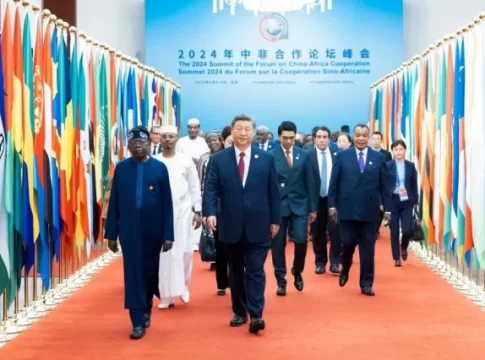Beijing – In a significant move to bolster economic cooperation, China has announced plans to expand its industrial and agricultural trade and investment ties with African nations. The announcement came during the China-Africa Economic and Trade Expo held in Beijing, underscoring the strategic importance of the African continent in China’s global economic agenda.
China’s Vice Premier, Liu He, emphasized the mutual benefits of deepening industrial and agricultural collaborations. “Africa is a key partner in our global economic strategy,” he stated. “By enhancing our trade and investment ties, we aim to foster sustainable growth and development in both regions.”
As part of this initiative, China has pledged $51 billion in fresh funding, which is expected to create a million jobs across the African continent.
The China-Africa Economic and Trade Expo saw several high-profile agreements signed, highlighting the commitment to deepening economic ties. Some of the most exclusive agreements include:
1. Agricultural Technology Transfer Agreement:
– China will provide advanced agricultural technologies and training to improve productivity and sustainability in African farming practices.
– This includes the establishment of research centers and demonstration farms in various African countries.
2. Infrastructure Development Projects:
– A $10 billion investment in infrastructure projects, including the construction and upgrading of roads, railways, and ports.
– Notable projects include the Nairobi-Mombasa Expressway in Kenya and the Lagos-Calabar Railway in Nigeria.
3. Industrial Parks and Special Economic Zones:
– Agreements to establish industrial parks and special economic zones in Ethiopia, Tanzania, and Zambia.
– These zones are expected to attract Chinese manufacturing firms, creating employment opportunities and boosting local economies.
4. Energy Cooperation:
– A $5 billion investment in renewable energy projects, including solar and wind farms in South Africa and Morocco.
– This aims to address the energy deficit in many African countries and promote sustainable energy solutions.
5. Healthcare Collaboration:
– A partnership to build and equip hospitals in rural areas of Africa, ensuring better healthcare access.
– China will also supply medical equipment and pharmaceuticals to combat prevalent diseases.
For African countries, this partnership promises enhanced economic growth, increased employment opportunities, and access to cutting-edge technologies. For China, it opens new markets for Chinese goods and services and secures a steady supply of raw materials essential for its industries.
While the initiative is largely welcomed, it also faces criticisms and challenges. Concerns about debt sustainability and the environmental impact of large-scale projects are prevalent among some African communities and international observers. However, both Chinese and African leaders have pledged to address these issues through transparent and sustainable practices.
This move is seen as a continuation of China’s Belt and Road Initiative, aiming to create a new era of global trade networks. As both regions navigate the complexities of this expansive partnership, the world watches closely to see how these developments will reshape the global economic landscape.


